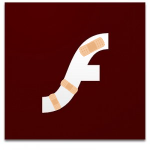 There are at least twenty-one fixes for security issues in the latest Firefox, version 68.0. If Firefox is your browser of choice, and it prompts you to install this update, you should let it proceed. If Firefox’s automatic version checking is disabled, you can always wake it up by navigating the ‘hamburger’ menu to
There are at least twenty-one fixes for security issues in the latest Firefox, version 68.0. If Firefox is your browser of choice, and it prompts you to install this update, you should let it proceed. If Firefox’s automatic version checking is disabled, you can always wake it up by navigating the ‘hamburger’ menu to Help > About Mozilla Firefox.
Other changes in Firefox 68.0 include the spread of “Dark mode in reader view” into the surrounding browser interface. Blecch. Well, it’s not for me, anyway.
Extension management, via the about:addons page, is improved in the new Firefox. It’s now easier to report security and performance issues with extensions and themes. It’s also easier to get detailed information about extensions. And there’s a new section that provides extension recommendations.
The release notes page for Firefox 68.0 has more information.
 boot13
boot13 Microsoft’s
Microsoft’s  (hamburger) button in the toolbar.
(hamburger) button in the toolbar. The latest release of Thunderbird, Mozilla’s email client, is
The latest release of Thunderbird, Mozilla’s email client, is  The latest Chrome release features a fix for one security vulnerability. There are about forty-five actual changes listed in the
The latest Chrome release features a fix for one security vulnerability. There are about forty-five actual changes listed in the  As usual, Adobe has released software updates to coincide with Microsoft’s Patch Tuesday, which makes things nice and tidy with Flash being integrated into IE and Edge.
As usual, Adobe has released software updates to coincide with Microsoft’s Patch Tuesday, which makes things nice and tidy with Flash being integrated into IE and Edge.